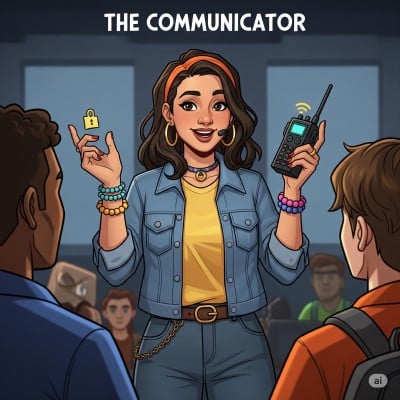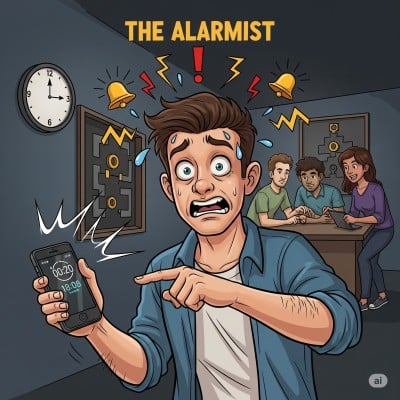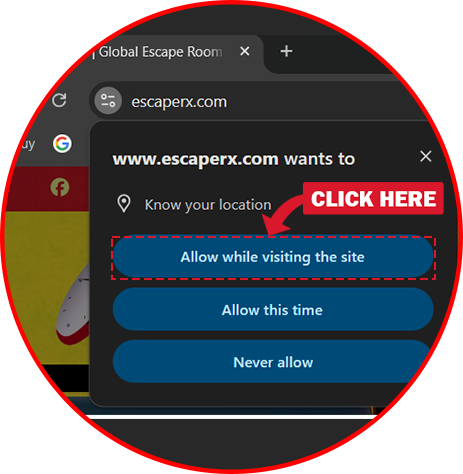Escape rooms are not just about puzzles, locks, and riddles they are about people. Behind every solved cipher or opened box lies the collaboration of a team working together under pressure 🔒. In this dynamic environment, where ideas emerge rapidly and time ticks relentlessly, one role quietly but profoundly shapes the team’s success: The Communicator 🗣 ️.
The Communicator is more than a talker 🌉; they are the team’s bridge. They ensure that ideas don’t get lost in the noise, that every voice is heard, and that discoveries made in one corner of the room are shared with the rest of the group. Without them, teams risk fragmentation puzzles go unsolved because the right connections are never made 🚫 🔇, or progress stalls because players are unknowingly working at cross-purposes. With them, however, a room full of individuals becomes a cohesive, coordinated unit.
What makes the Communicator so vital is their ability to transform chaos into clarity 🤝 🎯. Escape rooms can be overwhelming dozens of clues scattered across the space, multiple puzzles running in parallel, and a countdown clock pressing on every decision. Amid this whirlwind, it is easy for players to focus too narrowly on their own task, forgetting to share what they’ve found or what they’re attempting ➡ ️ 🔍. The Communicator notices these gaps. They bring information to the surface, repeat critical details, and connect the dots between teammates’ efforts. In doing so, they ensure that no piece of progress is lost, and no teammate is left in the dark 🌑.
The Communicator’s strengths extend beyond logistics they also serve as the emotional glue of the team. Escape rooms test not only intellect but patience ❤ ️ 🫂. Frustration builds when puzzles resist solution, when the clock dwindles, or when teammates clash in approaches. Here, the Communicator shines by de-escalating tension, redirecting focus, and encouraging perseverance. Their empathy keeps morale high, reminding the team that the challenge is shared and that setbacks are opportunities to regroup, not reasons to splinter 🌈 🤗.
For those who naturally identify as Communicators, the role can be honed and elevated with practice. It begins with active listening paying attention not only to puzzles but to people 👂. What is each teammate working on? What discoveries have been made? Who seems stuck and might need support? The Communicator absorbs this information and redistributes it effectively, acting as a hub for the team’s collective knowledge 📡.
Another key skill is clarity of expression. In the heat of the game, shouting vague updates like “I found something!” or “This must go somewhere!” can add to the chaos rather than reduce it. Strong Communicators learn to be precise: “I found a red key near the bookshelf. It looks like it might fit the small lock on the chest by the door 🗣 ️ 🎯.” The more direct and clear the communication, the faster the team can act.
Equally important is the ability to balance voices ⚡ 💨. Some teammates will be naturally louder, while others will hesitate to contribute. The Communicator ensures that quieter players have space to share their insights, gently drawing them into the conversation: “You were looking at that riddle earlier what do you think?” By valuing every voice, the Communicator elevates not only the gameplay but the overall team dynamic ⚖ ️ 🗣 ️.
For teams, recognizing the importance of the Communicator is essential. Too often, their contributions are invisible after all 📈 ❤ ️, they aren’t always the one solving the puzzle or unlocking the box. But their influence is everywhere, woven into the team’s flow, coordination, and energy. Teams that overlook this role risk fragmentation, while those that nurture it discover smoother collaboration and greater success 🏆 ✨.
The Communicator also reminds us of a deeper truth: escape rooms are a mirror of teamwork in life. In workplaces, families, and communities, communication is what turns groups of individuals into functioning units. Ideas must be shared, conflicts must be managed, and inclusivity must be fostered if progress is to be made. The Communicator’s role in escape rooms echoes this larger truth: puzzles may be solved by logic, but victories are achieved through collaboration.
For aspiring Communicators, the advice is simple but powerful 🌍: embrace your role. Refine your listening, sharpen your clarity, and practice empathy under pressure 🎉. You may not always be the one turning the key in the lock, but you will be the one ensuring that every clue finds its place and every teammate feels valued. Your presence transforms the game from a chaotic scramble into a coordinated adventure ✨.
In the end, escape rooms are not just about solving puzzles they are about solving them together 👨👩👧👦. The Communicator is the reminder that the key to escape is not hidden solely in riddles or objects but in the way people connect, share, and support each other. With a strong Communicator in the room, the experience becomes not just a victory on the scoreboard but a triumph of teamwork, inclusivity, and collaboration 💬 🫂.













